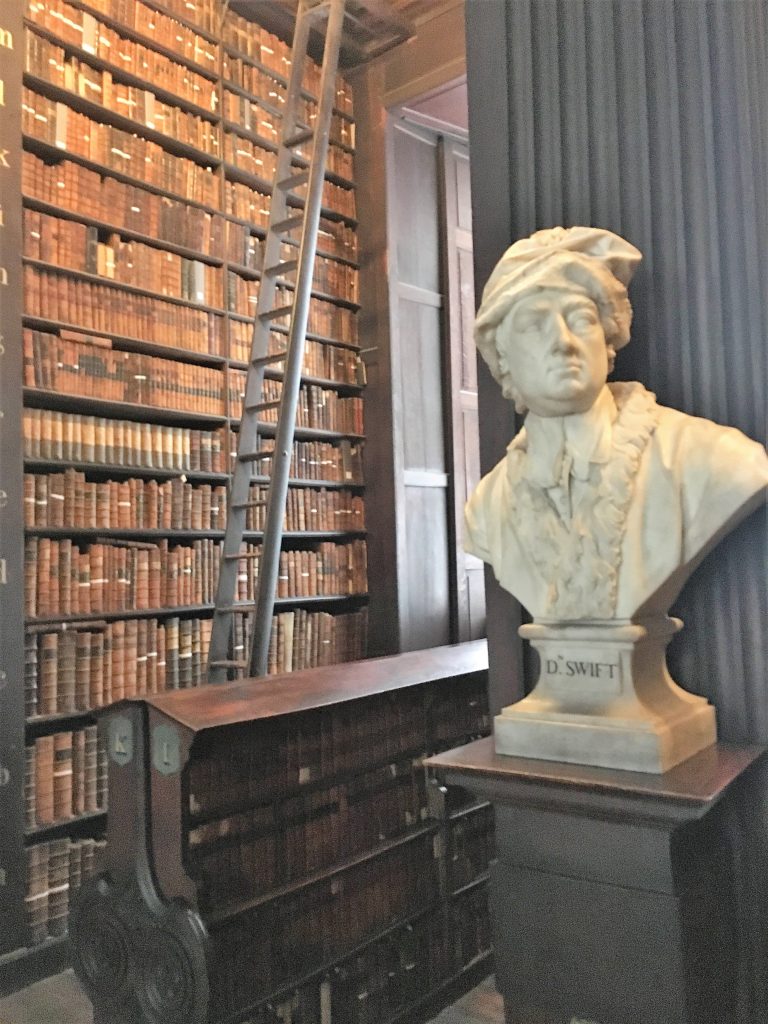
The Old Library, Trinity College, Dublin
As I have put my nose to the grindstone and got right back into my research, my principal supervisor’s early advice that you read your way to a Phd has really been ringing in my ears.
With Christmas out of the way and a quiet New Year, I have been slogging away.
My goal was to have my draft Literature Review completed by the end of the first week of January. I have laboured over it for so long and had really thought I was nearly there but I just am not!
The advice of rejection for a journal article I submitted before Christmas has me going back to basics. The rejection letter said, go back and read more, do more to make the research more robust. On the one hand, I was annoyed as I felt in conjunction with my experienced co-authors that the article as submitted met, the criteria at least for a revise and resubmit, but apparently not.
On the other hand, I was thankful that the rejection letter came with advice about what needed to be worked on.
As the journal article was the culmination of my Honours Research and is the basis of my PhD research, the advice in the rejection letter has had me rethinking how robust my PhD project is. How robust is my literature review, am I approaching my research method correctly, what will my contribution be? It’s later that is the fundamental step in being awarded a PhD.
As I read one of the journal articles recommended I found myself asking whether I had really nailed a key construct in my PhD research or was I just kidding myself?
It was perhaps even more basic than that. Do I really know what a construct is? Have I properly defined it? Is the way I have expressed it in context? Do the construct and the level of analysis align? I guess on the bright side, at least I know enough to ask these questions!
As I have reflected on each of these questions I have been pouring back over my literature and searching out other sources. It has also had me questioning so-called seminal pieces of literature. I guess that’s why a literature review requires critical analysis. I’ve found myself asking why is it that my journal article had been so harshly criticised when there appeared equally questionable approaches in the published literature. One, in particular, galled me, as something which was apparently so fundamentally flawed in my article seemed to have been accepted in an article published in the same journal.
Enough of the venting!
As I have reread the literature I have picked out things I hadn’t seen before. Are the initial assumptions and propositions that formed the basis of my research proposal correct? Pondering this has caused me a mild panic. Are my propositions built on a house of cards? Will it all collapse with just the merest breath? That’s a scary thought as I approach the end of my second year in the PhD program. Somehow I feel that this is more than the traditional self-doubt of a PhD student!
This panic has seen me combing through even more journal articles on “constructs”, “case study methodology” and “theorizing” as well as the basics of what a PhD thesis should look like. Why don’t I already know this? Perhaps there is more than an element of truth in Suddaby (2010) observation
“Yet even though we understand that language matters to effective theory development in the same way it matters to philosophy (Hacking, 1975), we devote considerably less time to training new researchers in understanding language than we do to understanding the nuances of statistical measurement”
I would certainly agree with this learned view and it’s something that those of us new to academic research often lament.
In an attempt to overcome my concerns, I have read and reread articles that address aspects of academic research. I have written a piece on key constructs using the journal articles I have read as a template and have rewritten my approach to my case studies based on a seminal journal article, that may end up in my thesis. I have been testing my early data collection against the key constructs and had a go at writing what theory might emerge from my work.
Each of these tasks has helped to ease my panic but confirmed one thing – I need to keep on reading!
I probably won’t do any reading tomorrow, at least not in the afternoon, as my Son is getting married!!!
Gosh! I’m exhausted just reading about it.
I admire your dedication, I don’t think I could do it! I hope you have a wonderful time at the wedding, and that you have some reading material saved to your phone for the quieter moments. No slacking!
Thanks Clive. It’s so much more difficult than I expected.
Will have a stash of reading for those quieter moments!
Thanks for your good wishes – much appreciated.
Congrats Mother of the Groom!
Also, have you ever read Wittgenstein? For me he was key in helping me understand the connection of language and thought. Or maybe I completely misinterpret him, but enjoyed reading it all the same.
Thanks so much, we very much appreciate your good wishes.
Should be a great day.
PS It’s Father of the Groom